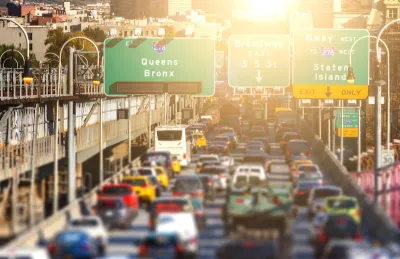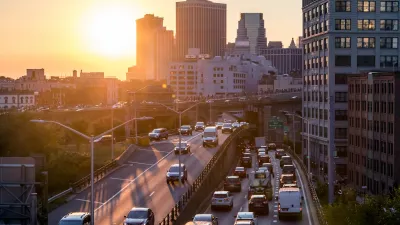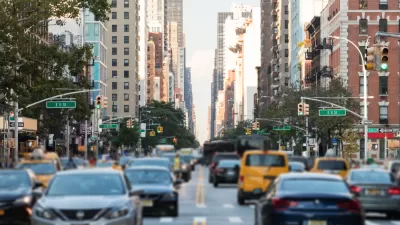Environmental and transit advocacy groups, along with the MTA, are suing USDOT over its recent crusade to end the cordon pricing program.

The Sierra Club joined the New York Metropolitan Transportation Authority (MTA) and other groups in filing legal action against the U.S. Department of Transportation (USDOT) for its attempt to end New York City’s congestion pricing program.
According to a press release from the Sierra Club, “The legal complaint charges that the Trump administration made serious legal mistakes in its rush to deprive New Yorkers of the benefits of Congestion Pricing, and that these mistakes suggest that the administration is acting pretextually.” The program raised $48.6 million in its first month and has been shown to reduce congestion and improve travel times.
“We’re filing today’s case because congestion relief is saving us time on buses, fixing our aging subways, and improving our health. We can’t afford to go back.” — Riders Alliance Executive Director Betsy Plum
The new lawsuit argues that the plan to end the program has a flawed legal basis. “The letter states that federal law has never contemplated ‘cordon pricing’ as a permissible congestion pricing strategy, except where toll-free options are available to drivers. In fact, cordon pricing has for decades been recognized by the Federal Highway Administration (FHWA) as a form of congestion pricing, and it authorized cordon pricing projects more than twenty years ago.”
FULL STORY: New Challenge on Trump Administration’s Attempt to “Terminate” New York’s Congestion Pricing Program

Planetizen Federal Action Tracker
A weekly monitor of how Trump’s orders and actions are impacting planners and planning in America.

Congressman Proposes Bill to Rename DC Metro “Trump Train”
The Make Autorail Great Again Act would withhold federal funding to the system until the Washington Metropolitan Area Transit Authority (WMATA), rebrands as the Washington Metropolitan Authority for Greater Access (WMAGA).

The Simple Legislative Tool Transforming Vacant Downtowns
In California, Michigan and Georgia, an easy win is bringing dollars — and delight — back to city centers.

The Small South Asian Republic Going all in on EVs
Thanks to one simple policy change less than five years ago, 65% of new cars in this Himalayan country are now electric.

DC Backpedals on Bike Lane Protection, Swaps Barriers for Paint
Citing aesthetic concerns, the city is removing the concrete barriers and flexposts that once separated Arizona Avenue cyclists from motor vehicles.

In These Cities, Most New Housing is Under 441 Square Feet
With loosened restrictions on “micro-housing,” tiny units now make up as much as 66% of newly constructed housing.
Urban Design for Planners 1: Software Tools
This six-course series explores essential urban design concepts using open source software and equips planners with the tools they need to participate fully in the urban design process.
Planning for Universal Design
Learn the tools for implementing Universal Design in planning regulations.
Smith Gee Studio
City of Charlotte
City of Camden Redevelopment Agency
City of Astoria
Transportation Research & Education Center (TREC) at Portland State University
US High Speed Rail Association
City of Camden Redevelopment Agency
Municipality of Princeton (NJ)





























